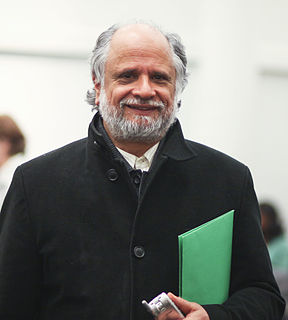A Quote by Clifford Geertz
Related Quotes
And there is also the paradox that the dominating culture imbues the Indian past with great meaning and significance; it is valued more because it is seen as part of the past. And it is the romantic past, not the present, that holds meaning and spiritual significance for so many members of the dominating culture. It has seemed so strange to me that the larger culture, with its own absence of spirit and lack of attachment for the land, respects these very things about Indian traditions, without adopting those respected ways themselves.
As soon as you look at the world through an ideology you are finished. No reality fits an ideology. Life is beyond that. That is why people are always searching for a meaning to life. But life has no meaning; it cannot have meaning because meaning is a formula; meaning is something that makes sense to the mind. Every time you make sense out of reality, you bump into something that destroys the sense you made . Meaning is only found when you go beyond meaning.
What is distinctive about the U.S. is that higher education is under attack not because it is failing but because it is public. It is now considered dangerous because it has the potential to function as a site where a culture of questioning can operate, the imagination can blossom, and difficult questions can be openly debated and critically engaged.
women's entry into the public sphere can be seen not merely as the result of contemporary economic pressures, the high rate of divorce, or the success of the feminist movement, but rather as a profound evolutionary response to a pervasive cultural crisis. Feminine principles are entering the public realm because we can no longer afford to restrict them to the private domestic sphere, nor allow a public culture obsessed with Warrior values to control human destiny if we are to survive.
In short, the enlightenment privatized marriage, taking it out of the public sphere, and redefined its purpose as individual gratification, not any 'broader good' such as reflecting God's nature, producing character, or raising children. Slowly but surely, this newer understanding of the meaning of marriage has displaced the older ones in Western culture.
I go to conventions all the time. I'm not one of those actors who's public-shy, meaning I don't mind when someone comes up. It doesn't happen often in the real world because people don't recognize me because I was in makeup, but when it does, I don't usually mind it at all if somebody says something.
The theoretical recognition of the split-space of enunciation may open the way to conceptualising an international culture, based not on the exoticism of multiculturalism or the diversity of cultures, but on the inscription and articulation of culture's hybridity. It is the inbetween space that carries the burden of the meaning of culture, and by exploring this Third Space, we may elude the politics of polarity and emerge as the others of our selves.





































